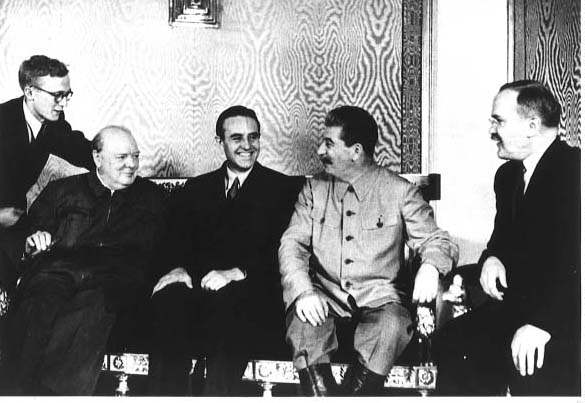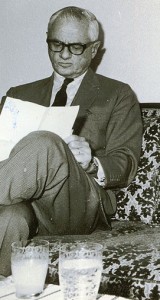
“Stalin never broke his word to me.” Were these Churchill’s words?
A magazine fact checker writes asking if Churchill ever said, “Stalin never broke his word to me.” The short answer is yes. The long answer shows how careful we should be when quoting Churchill.

The source of this quote is the journalist C.L. Sulzberger (1912-1993), in his 1970 book, The Last of the Giants, page 304. In it Sulzberger reports his “five hours with old Winston Churchill” at Chartwell on 10 July 1956.
Churchill, wrote Sulzberger, thought Stalin “a great man, above all compared to Khruschev and Bulganin,” and quoted Churchill as follows:
Stalin never broke his word to me. We agreed on the Balkans. I said he could have Rumania and Bulgaria; he said we could have Greece (of course, only in our sphere, you know). He signed a slip of paper. And he never broke his word. We saved Greece that way. When we went in in 1944 Stalin didn’t interfere. You Americans didn’t help, you know.
Sulzberger was a reliable reporter, so the source although hearsay, is credible. As a gauge of Churchill’s final view of Stalin, it is more problematic.
By 1956 Churchill was an aged 81, out of power and still smarting over his failure to achieve a summit conference with the Russians. (Eisenhower held one almost immediately after Churchill left office, saying, privately. that he feared “Winston might give away the store.”) Churchill had long argued for a three-power meeting and “settlement” with the Russians, based on the brand of personal diplomacy he’d practiced with Stalin during World War II.
Stalin and the “Percentages Agreement”
In saying Stalin never broke his word, Churchill referred to the much misrepresented “naughty paper.” This was the “percentages agreement” with Stalin in their Moscow talks (Tolstoy Conference, 9-19 October 1944)—which Stalin did honor. The Soviets made no move to interfere when Churchill flew to Athens to broker a truce between communist and nationalist insurgents. Stalin began meddling in Greece after Churchill was out of office. He met stiff resistance from President Truman.
After the Yalta Conference in February 1945, Churchill said he thought he could trust Stalin. His success in Greece was fresh in his mind, and Stalin had promised free elections in Poland. Within a month Churchill admitted, in correspondence with Roosevelt, that he’d been wrong. Even in the immediate aftermath of Yalta, on 23 February 1945, he wondered, after Germany’s defeat, “what will lie between the white snows of Russia and the white cliffs of Dover?” (John Colville, Fringes of Power, 563).
It is fair to say that Churchill believed Stalin had not broken his word through 1944. To some extent his 1956 remark to Sulzberger was meant to contrast what Churchill saw as the giant figure of Stalin. But trust in Stalin was certainly not something Churchill expressed often after 1945. In the end, I doubt that he had very much.
Speaking at the Massachusetts Institute of Technology (3 March 1949) Churchill predicted the fall of communism, fueled by “a spark coming from God knows where and in a moment the whole structure of lies and oppression is on trial for its life.” Jock Colville told me that WSC said to him: “I won’t live to see it, but you will.” Colville died in 1987. He didn’t quite make it.






